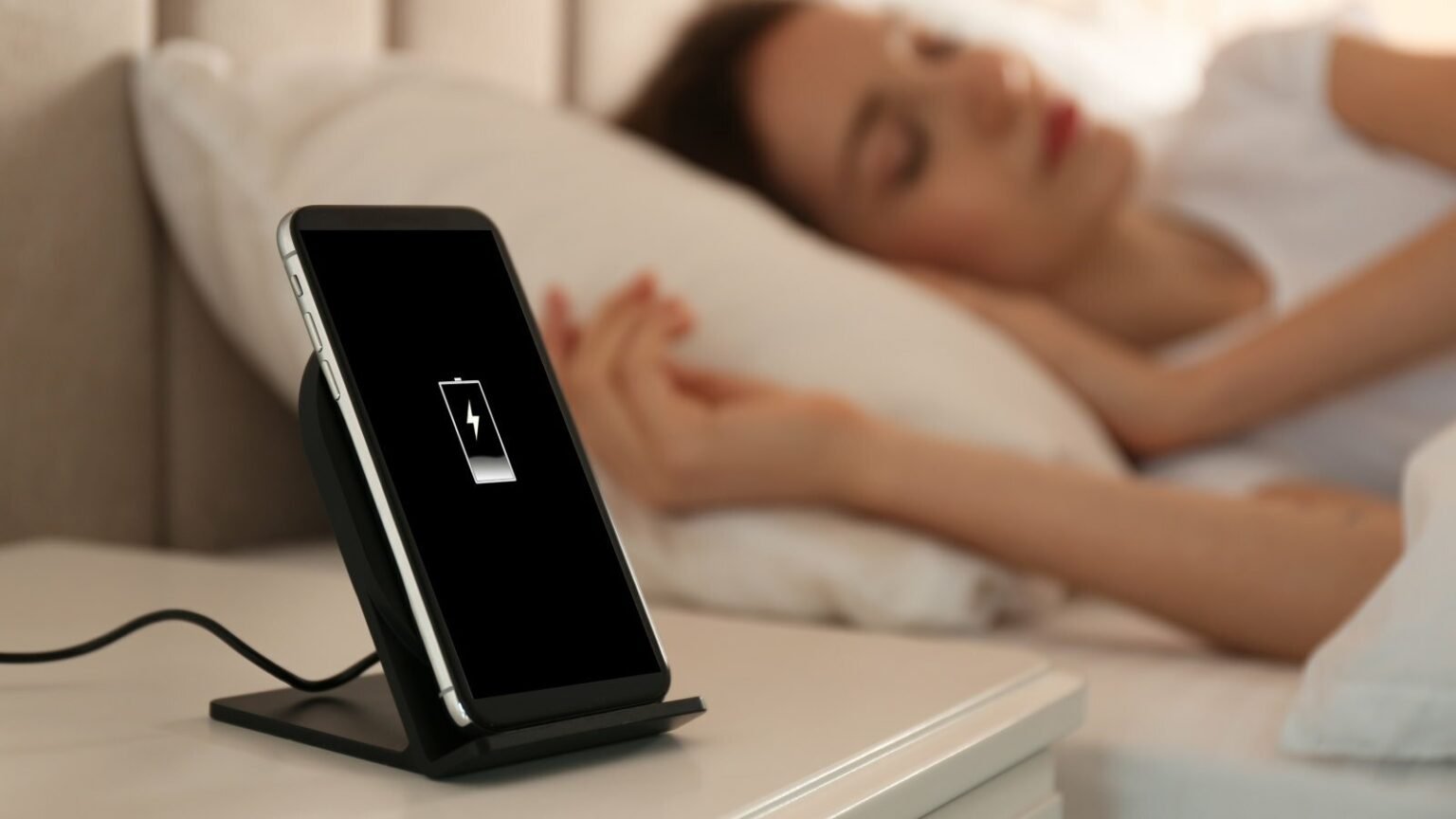Is charging your mobile battery at night a threat to your life? Leaving your smartphone charging overnight is a common practice for many individuals who utilize their devices extensively throughout the day. However, this habit can have implications for the device’s battery health and overall longevity. Continuous charging for extended periods, such as overnight, can lead to overcharging, which can degrade the battery’s capacity over time.
Additionally, prolonged exposure to heat generated during charging can accelerate battery deterioration. To maintain optimal battery health, it is advisable to avoid leaving your phone charging overnight whenever possible, and instead, aim to disconnect it once it reaches a full charge or utilize features like charging limiters if available.
Indeed, the consensus among experts affirms that modern smartphones incorporate sophisticated mechanisms to prevent overcharging. These devices typically integrate specialized protection chips within their design, serving to safeguard against overloading. Upon reaching full capacity, the internal lithium-ion battery undergoes an automatic cessation of the charging process, thereby averting the risk of overcharging. This feature underscores the advanced engineering and safety protocols implemented within tablets, smartphones, and laptops to ensure optimal battery management and longevity.
Leaving your smartphone connected to the charger overnight can result in a continuous cycle of slight energy consumption each time the battery level drops to 99%. Over time, this practice can impact the overall lifespan of your phone. While modern electronics are designed to cease drawing current once the battery reaches full charge, consistently fully charging your smartphone is not conducive to battery longevity. Optimal battery health is often best maintained by avoiding frequent full charging cycles and instead aiming for partial charging when necessary to minimize stress on the battery cells.
The misconception surrounding overcharging smartphones remains prevalent. The actual quantity of charge supplied to your device becomes inconsequential, given the intelligent design of modern devices to cease charging once reaching full capacity. Consequently, the device selectively tops up its charge as necessary to maintain a 100 percent battery level, thereby dispelling concerns related to overcharging. This functionality underscores the advanced capabilities of contemporary electronics to regulate charging processes effectively and ensure optimal battery management.
The potential issue arises from battery overheating, leading to potential damage. To mitigate this risk, it is advisable to remove any phone case during overnight charging. Additionally, positioning the phone on a flat, rigid surface facilitates efficient heat dissipation, reducing the likelihood of overheating. By implementing these precautions, users can promote optimal charging conditions and safeguard the longevity of their device’s battery.
Charging your phone overnight can be considered safe, provided measures are taken to prevent overheating. Furthermore, advancements in charging technology have significantly reduced charging times, rendering overnight charging unnecessary. In practice, many modern smartphones can attain a full charge within a much shorter timeframe, often well below the traditional 7-8 hour window.
As such, users can benefit from expedited charging capabilities while minimizing the duration of charging sessions, thereby optimizing both convenience and battery health.
As outlined in a report by USA Today, manufacturers such as Apple have provided insights into the implications of overnight phone charging. Apple suggests that prolonged periods of maintaining an iPhone at full charge can potentially impact the battery’s health over time. This acknowledgment underscores the importance of mindful charging practices to mitigate potential adverse effects on battery longevity.
Various Android phone manufacturers, including Samsung, echo similar sentiments regarding prolonged charging durations, advising against leaving phones connected to chargers for extended periods, particularly overnight. Recommendations from Huawei emphasize the benefits of maintaining the battery level within the range of 30% to 70% to optimize the overall lifespan of the phone’s battery. This guidance underscores the importance of adopting strategic charging habits to preserve battery health and longevity across diverse smartphone brands.
While it’s widely understood that charging halts automatically when the battery reaches full capacity, it’s crucial to note that in certain scenarios, replenishing the battery from 99% to 100% may necessitate additional energy input. This repetitive cycle of topping up the charge, even by a small margin, can contribute to battery degradation over time. Maintaining awareness of this phenomenon underscores the importance of adopting prudent charging practices to mitigate potential impacts on battery lifespan.


















